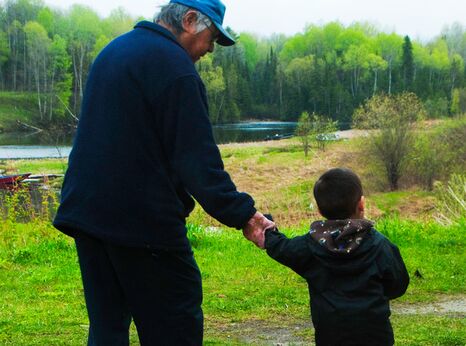Canada: Justice for indigenous children

Residential schools in Canada were part of a colonial policy to eradicate Indigenous cultures, languages, and communities. While the last school closed in 1996, intergenerational trauma, ongoing harms and discriminatory practices against Indigenous Peoples continue.
Because of discriminatory colonial policies, Métis, Inuit, and First Nations children continue to be disproportionately represented in the child welfare system. First Nations children living on reserve receive less money for healthcare and education than other children in Canada. Indigenous women, girls, and two-spirit people experience staggeringly high rates of violence. Inuit, Métis, and First Nations people too often experience racism when accessing or interacting with public services like policing and healthcare. The Canadian government frequently approves industrial projects on Indigenous territories without free, prior, and informed consent or recognition of Indigenous laws and scientific knowledge.
The reports of the Royal Commission on Aboriginal Peoples in 1996, the Truth and Reconciliation Commission in 2015, the National Inquiry into Missing and Murdered Indigenous Women and Girls in 2019, plus numerous reviews by the UN and other international human rights bodies, have documented the extent of the harms against Indigenous Peoples in Canada, and made thousands of recommendations to Canada to ensure justice and accountability for Indigenous Peoples.
Despite the harms being well known, and recommendations for change clearly laying out the path forward, Canada continues to resist real justice and accountability. It has yet to pass Bill C-15 to implement the UN Declaration on the Rights of Indigenous Peoples. It continues to litigate against First Nations children living on reserve, denying them the same levels of funding for basic services as other children in Canada. Canada is still fighting residential school and day school survivors in court, and it continues to resist calls from Indigenous Peoples to respect their right to self-determination and apply the principle of free, prior, and informed consent regarding industrial development on their territories.
To ensure justice and accountability—not only for the 215 children whose bodies were buried at the Kamloops Indian Residential School—but for all First Nations, Métis, and Inuit Peoples, Canada must take concrete action without delay.
You can read more about the Family Caring Society of Canada’s Spirit Bear Plan here and the 94 calls to action from the Truth and Reconciliation here.
For more information, see: Amnesty International Canada’s statement, Lowering flags is not enough, 1 June 2021, and blog post, Indigenous Children Deserve Justice and Accountability, 3 June 2021.